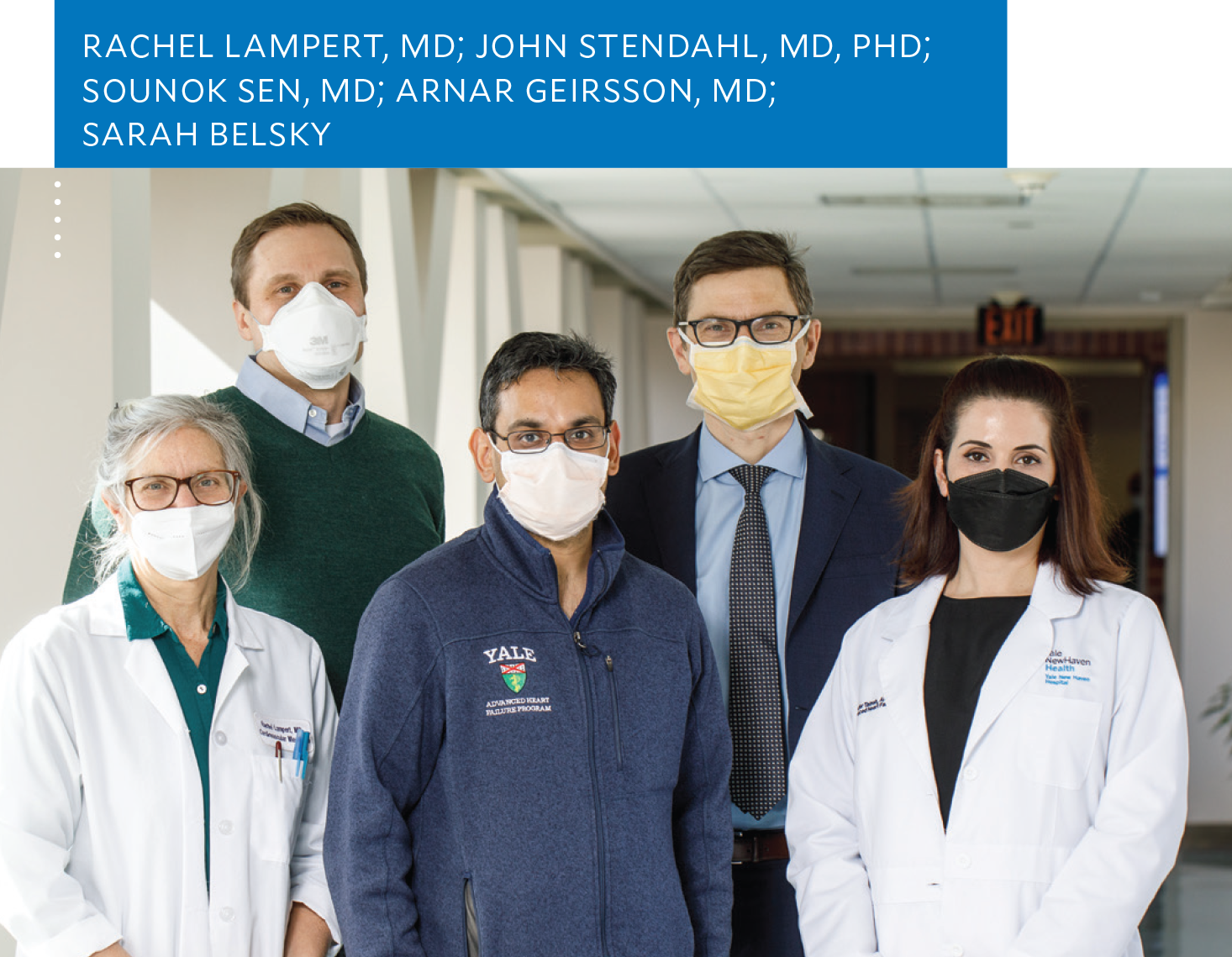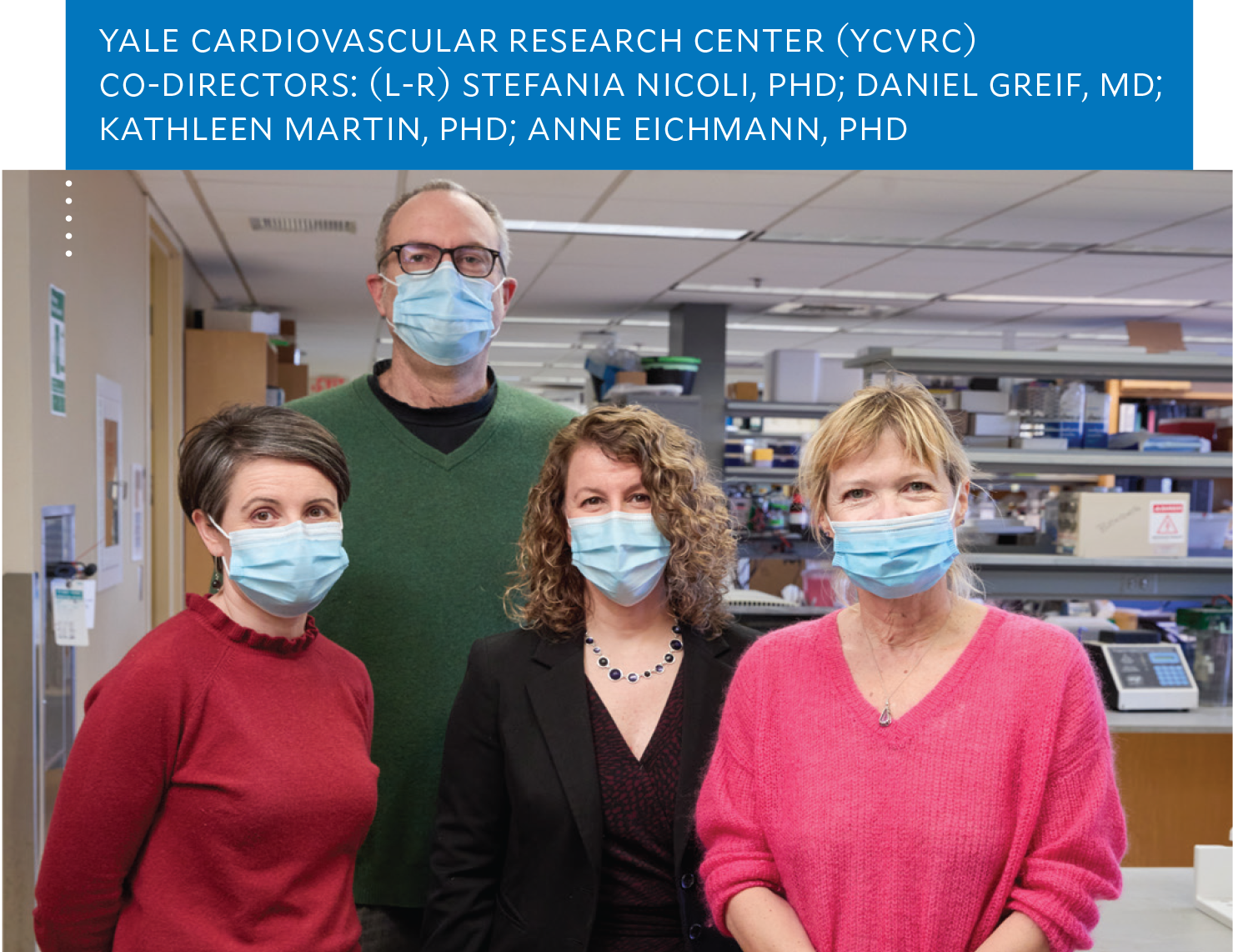Update from Section Chief Eric J. Velazquez, MD
The Section of Cardiovascular Medicine is a diverse and integrated community that includes clinicians, investigators, and educators. The section’s 193 faculty provide world-class patient-centered care and transform cardiovascular medicine through innovative research, scholarship, and training. The section strives to expand dynamic collaborations among clinicians and investigators within the section, the larger Yale community, and Yale New Haven Health.
Over the past year, the section has focused on recruiting outstanding faculty and the development of our early-career faculty and trainees. Under the leadership of Eric J. Velazquez, MD, the section has established an administrative and leadership team to expand support for clinical and research operations. To fully realize these ambitions, Nihar Desai, MD, MPH, vice chief for Clinical Operations; Daniel Price, MD, vice chief for Ambulatory Programs; Lauren Baldassarre, MD, vice chief for Faculty Life; Jeffrey Bender, MD, senior vice chief for Academic Development; and Edward Miller, MD, PhD, vice chief for Education; along with clinical program and research center leadership working towards developing strategic goals and are focusing on opportunities for integration between the section’s expansive areas of research and clinical activities, and in concert with colleagues across the department, health system, school, and university.
The clinical programs within cardiovascular medicine include 15 faculty-led inpatient services, five general services, and sub-specialty services at Yale New Haven Health and also at the VA Connecticut Healthcare System. The section’s faculty group practice sees patients at 21 ambulatory sites with approximately 300 ambulatory sessions weekly. The section also runs a robust cardiovascular imaging program, including high-volume expertise in echocardiography, nuclear, cardiac CT and cardiovascular MRI across multiple laboratories at different hospital and clinic-based sites; and invasive laboratory programs in electrophysiology, coronary interventional, endovascular, and structural heart disease, serving not only patients in the Greater New Haven region but also in New London and Fairfield Counties.

The Yale Cardiovascular Medicine fellowship program, the largest at Yale New Haven Hospital. has the privilege of training over 50 physicians in advanced subspecialty and general cardiology programs each year. Our laboratories also support the training of graduate students, post-doctoral and early-career PhD investigators. The section is committed to the dissemination of knowledge. We are excited to continue to bolster a vibrant CME program that includes a new series called Giants in Cardiovascular Medicine, which celebrates the section's history.
The Section of Cardiovascular Medicine is fortunate to be part of one of the world’s leading universities. We are committed to leveraging partnerships across the university. The section will align itself through clinical subspecialty areas and invest in translational laboratories to link the clinic and our strengths in the biological mechanisms of health and disease. These programs will lead to preliminary data that can be used to launch new NIH-funded research proposals and pilot programs. To do so, the section intends to recruit mid-career faculty and increase opportunities for women and under-represented minorities to expand the section’s reputation in human and translational cardiovascular research.
The section has identified key areas of scholarship and inquiry for the future:
- Facilitate research synergies at the department and university levels in cardiometabolic, thrombosis, inflammation and immunity, precision medicine, and biomedical engineering.
- Advance the understanding of social, economic, and environmental factors that influence patient life expectancy and outcomes.
- Invest in biostatistics, computational biology, and informatics to improve how we measure, test, and interpret clinical, translational, and mechanistic research.
- Ensure that the section’s care and research programs incorporate our emerging understanding of lifestyle and lifespan factors.
The Section of Cardiovascular Medicine has nearly seven decades of clinical and academic excellence. To learn more, visit cardiology.yale.edu.
-------------------------------------------------------------------------------------------------

